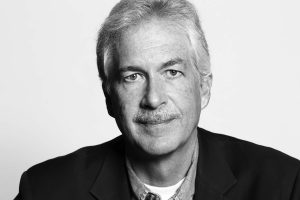
William Burns, president of the Carnegie Endowment for International Peace and former deputy secretary of state, is returning to speak at Chautauqua for the second year in a row; this year, he will talk about the importance of diplomacy in an increasingly turbulent world. Burns’ lecture begins at 10:45 a.m. today (June 28) in the Amphitheater.
Burns worked as a career diplomat in the U.S. Foreign Service for more than 30 years, under three different presidential administrations. During those years, he traveled all over the world and met with world leaders, giving him a firsthand view of events of historical significance. It is for this reason he was invited to end the first week of morning lectures, themed “Moments That Changed the World.”
“As we look to history to better understand our world today, there are few voices with such authority on matters of American diplomacy and foreign affairs as Ambassador Burns,” said Matt Ewalt, vice president and Emily and Richard Smucker Chair for Education at Chautauqua Institution.
Burns released a book this year titled The Back Channel: A Memoir of American Diplomacy and the Case for Its Renewal. Discussion of the book will be a major part of his lecture; in it, he describes some of the most notable moments and aspects of his time as a diplomat.
One of those moments, he said, is now.
“We’re at a moment of profound transformation on the international landscape,” Burns said, “the kind of moment that comes along only once or twice a century.”
Burns sees the current moment as similar to the periods after World War II and the Cold War — a “plastic moment,” given the rise of new major powers like China and the resurgence of Russia.
“(It’s) a world in which the United States may no longer be the single dominant player like we were right after the end of the Cold War, but we’re still the preeminent player on that landscape,” Burns said.
Given these shifts in the international landscape, along with global challenges like climate change and the revolution in technology, Burns believes that diplomacy matters more than ever and that the United States ought to draw on alliances and mobilize coalitions with other countries to manage all these challenges.
Burns considers the current unilateralist tendencies of U.S. foreign policy to be a major obstacle to managing global challenges; thus, in his lecture, he will make the case for renewing diplomacy while bringing the experience of being a diplomat to life for a wider audience.
There are many events Burns has witnessed in the foreign service that he considers moments that changed the world. Among these are the end of the Cold War, the reunification of Germany, Operation Desert Storm, Arab Spring and more. During his career he also dealt with “a kaleidoscope of complicated foreign personalities from Muammar Gaddafi to Vladimir Putin.”
Throughout the years he has spent around some of the world’s most powerful people and most significant changemakers, Burns has accumulated many colorful stories — some of which he will share in his lecture.
“(I) use those stories to make the case for diplomacy and make the case for the connection between effective American engagement overseas and the best interest of American citizens as well,” Burns said.
There is a disconnect in this country between the government and the people it serves, according to Burns, in part because of the polarized landscape of politics, and in part because of a degree of mistrust and misunderstanding.
“You’ve got to take into account people’s understandable skepticism about the capacity of their leaders to engage in a disciplined approach to the world,” Burns said, “because we haven’t always been disciplined and we have overreached.“
Through his lecture, Burns hopes to offer a better sense of how diplomacy works and how effective foreign policy begins at home — with a strong political and economic system — and ends at home — with greater prosperity and security and a better environment.




